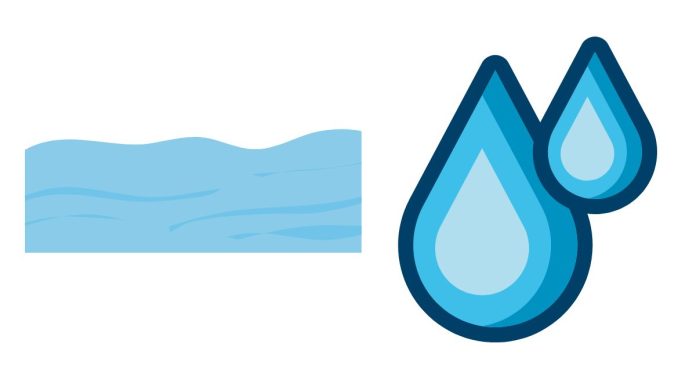Water is often called the universal solvent because it has the ability to dissolve a wide variety of substances. This remarkable property is due to water’s unique molecular structure, specifically its polarity and the ability to form hydrogen bonds. Let’s break down the key reasons why water is known as the universal solvent:
1. Polarity of Water Molecules
Water molecules have a polar structure, meaning they have a positively charged side (hydrogen atoms) and a negatively charged side (oxygen atom). This polarity allows water to interact with and dissolve many different types of molecules, especially ionic and polar compounds.
- Ionic compounds (like salt, NaCl) dissolve in water because water molecules surround the ions and separate them. The negatively charged oxygen atoms of water attract positive ions (cations), while the positively charged hydrogen atoms attract negative ions (anions).
For example, when salt (NaCl) dissolves in water:
- Sodium ions (Na⁺) are attracted to the oxygen side of water molecules.
- Chloride ions (Cl⁻) are attracted to the hydrogen side of water molecules.
2. Hydrogen Bonding
Water molecules are also able to form hydrogen bonds with each other and with other polar molecules. These are relatively strong attractions between the positively charged hydrogen atom of one water molecule and the negatively charged oxygen atom of another.
- When water encounters a polar or ionic substance, it forms hydrogen bonds or electrostatic interactions that help break apart the bonds holding the solute molecules together, leading to dissolution.
3. Dissolving a Wide Range of Substances
Because of water’s polarity and hydrogen bonding ability, it can dissolve many types of substances, such as:
- Ionic compounds like salts (NaCl, KNO₃)
- Polar molecules like sugars (glucose, sucrose)
- Gases like oxygen (O₂) and carbon dioxide (CO₂) in limited amounts
However, water is less effective at dissolving nonpolar substances (like oils or fats), because the molecules of nonpolar substances do not interact well with water’s polar molecules.
4. Importance in Biological and Environmental Systems
In living organisms, water’s ability to dissolve and transport nutrients, gases, and waste products is essential for life. For example:
- Water helps carry nutrients through the bloodstream and cells.
- Waste products are dissolved and excreted in the form of urine.
- Gases like oxygen and carbon dioxide are dissolved in water, enabling respiration in aquatic life.
In ecosystems, water dissolves and transports minerals and nutrients, making them accessible to plants.
In Summary:
Water is called the universal solvent because it can dissolve a wide variety of substances, particularly ionic and polar compounds, due to its polar nature and ability to form hydrogen bonds. This property makes water vital for many chemical, biological, and environmental processes.
Let me know if you’d like more examples or further details!
Related posts:
- What does ringing in the ears mean spiritually?
- What Colors Do Blue and Green Make?
- How Long Does Raw Chicken Really Last in the Fridge?
- What are some amazing and memorable Valentine’s Day ideas that will leave a lasting impression?
- What is the definition of ‘friends with benefits?
- What is the difference between a bachelor’s and a degree?


